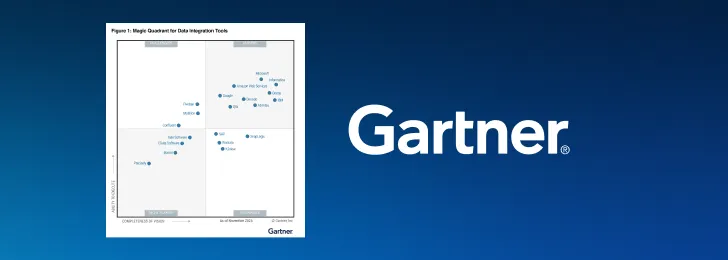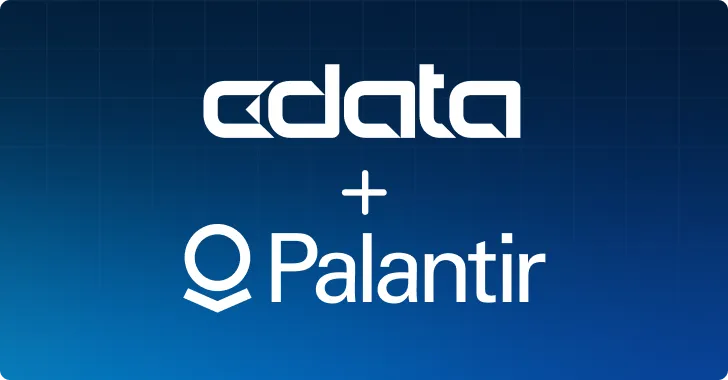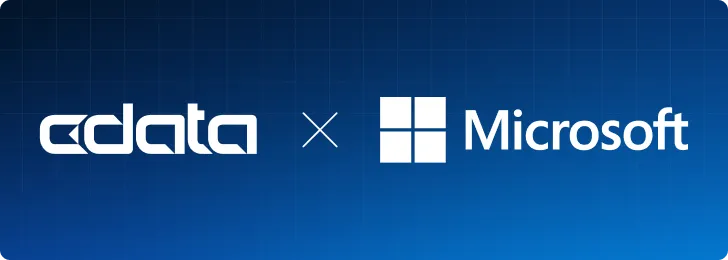
This post is part of our Vibe Querying content series, where we explore real-world applications of Model Context Protocol (MCP) servers with live data sources.
The third episode of our Vibe Querying series takes us into the world of sales execution, where we explore how sales leaders can leverage CData's Salesforce MCP Server to gain actionable insights from their deal portfolios. Joining us for this episode is Jared Feeney, Senior Sales Director at CData Software, who demonstrates how he uses MCP to transform his daily sales management workflow.
Watch Now: Vibe Querying with MCP - Episode #3
Introducing MCP, CData MCP Servers, and Vibe Querying
Model Context Protocol (MCP) is a standard protocol designed to connect AI models to external data sources, tools, and workflows securely and efficiently. MCP enables AI models to access real-time data and interact naturally with that information through conversational AI or agent-driven actions.
CData MCP Servers, released in beta a few weeks ago, connect CData's connector library of 350+ data sources to your favorite AI clients like Claude or Gemini. This combination gives AI models access to the work data they need to be genuinely useful in business contexts.
This brings us to the concept of "vibe querying" - much like vibe coding, it's a conversational approach to data exploration. You no longer need intimate knowledge of data schemas or prebuilt pipelines. You simply ask questions in natural language, and the MCP server provides live access to data while the AI uses its knowledge to provide answers.
Managing sales portfolios: a real-world challenge
Jared Feeney brings a sales leader's perspective to our exploration, focusing on the practical challenge of managing a complex deal portfolio. His goal: understand opportunities across his North American region, identify blockers, and determine actionable next steps to drive deals to close. What makes this particularly compelling is that we're working with real Salesforce data, not sanitized examples.
Note: Any numbers and customer names presented below have been obfuscated (by a very neat Claude instruction).
Query 1: Regional deal portfolio analysis
The question
"If I'm focusing on my North American region and thinking about companies under a billion in annual revenue, what are my deals that have potential? What are the main blockers? How can I become very tactical with a strategic question?"
As Jared explains, this type of strategic question epitomizes the daily challenge of a sales director. "Day to day is a very busy time for me as a sales director. You get a lot of different questions coming to you, but you also need to try to think both strategically and tactically, which can be very challenging because strategic initiatives take a lot of thought, take a lot of planning, and sometimes there just simply isn't enough time in the day."
What Claude did
Claude immediately began querying the Salesforce data, running multiple SQL queries to analyze opportunities based on:
Geographic filtering for North American accounts
Company size constraints (under $1B annual revenue)
Deal stage and progression analysis
Activity timeline assessment
Risk factor identification
The system autonomously defined "at-risk" criteria using industry standards: deals with no activity in 15+ days, stagnant next steps, or approaching close dates without recent engagement.
The impact
This single query replaced what would typically be 1-2 hours of manual report building for Jared. As he notes, "If you're a power user of something like Salesforce, which I would probably consider myself able to be, you could create the reports yourself, exploring different objects and reporting structures but it takes a lot of time and energy. That process by itself might take an hour or two and I would usually have Sales Ops verify my report is accurate."
More importantly, Claude provided not just data but actionable insights, analyzing both structured fields and unstructured text from notes and emails. The result included recommended actions with timelines and potential business impact scenarios (best case, likely case, worst case), providing immediate strategic direction for deal management that would typically require separate analysis time.
Query 2: Individual deal deep dive
The question
"Dig into this at-risk deal, Silverstone Technologies, for me. What are my biggest risks? What do I need to be on the lookout for? Create a visual guide or presentation that showcases this for me."
For Jared, this represents a critical capability gap in traditional sales management. "With the hundreds of deals, maybe even thousands of opportunities that we're running, it's impossible to be up to date with every single thing at all times." This query demonstrates how MCP enables deep-dive analysis that would otherwise require dedicated research time Jared simply doesn't have.
What Claude did
Claude generated a comprehensive HTML presentation featuring:
Financial impact analysis showing immediate loss potential
Timeline visualization of all deal activities and interactions
Risk assessment based on activity gaps and engagement patterns
Recovery plan with specific action items and estimated timeframes
Professional, interactive interface with smooth transitions and hover effects
The analysis pulled from custom Salesforce fields (identifiable by "_c" suffixes), demonstrating full API access including organization-specific customizations.
The impact
This capability transforms how Jared can quickly assess and communicate deal status to his team and leadership. "When I need to talk to my management team as well, I can get them the most up-to-date information in a very quick manner." The generated presentation is immediately suitable for executive reporting or rep coaching sessions. What would previously require manual data compilation, analysis, and presentation creation was completed in minutes.
As Jared notes "If you were to ask me to do this presentation piece, it would probably take me at least a week with the other work I have going on. Now, I can create it in a few minutes and edit it so it’s presentation ready.”
Query 3: Performance dashboard creation
The question
"I want to understand my closed lost deals for fiscal year 2025 in the US. Can you create a nice dashboard that helps showcase this for our various products?"
This query addresses Jared's need for executive-ready analytics that can support both internal strategy discussions and external client presentations. As he explains, the visual dashboards provide "that extra bit of professionalism when presenting to a client and trying to make sure that we have a path to close."
What Claude did
Claude created an interactive dashboard with:
Visual breakdown of closed-lost deals segmented by product line
Geographic distribution across US regions
Trend analysis over the fiscal year period
Interactive hover functionality revealing detailed metrics
Professional formatting with charts and data visualizations suitable for executive presentations
The impact
This demonstrates the universal SQL-based approach of CData's MCP servers working across complex data relationships. For Jared, the dashboard provides immediate visual intelligence for forecasting discussions and strategic planning. "Forecasting is something that at every sales organization does and is a core skill for reps and managers alike. So being able to create those forecasts... having those disparate data systems all connected in a natural language way is so valuable both for time saving and for accuracy." Sales leaders can now generate executive-ready readouts in a matter of minutes. It shifts ownership of accurate data analysis to managers and reps instead of waiting for scheduled reporting cycles.
Unexpected benefits for sales execution
Data Quality Amplification: The accuracy of AI insights directly correlates with Salesforce data quality. As Jared discovered through testing with his reps, "I’m able to surface the data they spend time inputting into Salesforce more easily. Reps can more easily see how their data is being used and what value it brings to the organization and know that their time is well spent.”
Unstructured Data Integration: Unlike traditional reporting, Claude analyzes notes, emails, and text fields within Salesforce, extracting insights impossible to capture in standard reports.
Bi-directional Capabilities: While focused on analysis, CData's MCP servers support writing data back to Salesforce, enabling deal updates and status changes through conversational AI.
The value of Vibe Querying for sales leaders
This episode illustrates how MCP technology transforms sales leadership from reactive reporting to proactive intelligence. Sales managers like Jared can now engage in strategic thinking supported by real-time analysis without requiring technical expertise or analyst resources. The technology augments existing dashboards and reports with contextual intelligence and rapid hypothesis testing capabilities.
For organizations ready to implement similar capabilities, CData's MCP servers are available in free beta through year-end. Installation takes minutes with standard OAuth authentication—no scripting required. Head to the CData prompt library to access proven queries and kickstart strategic conversations.
Ready to revolutionize your sales execution? Download CData's Salesforce MCP server at cdata.com/solutions/mcp and discover what your data is really saying.
Try CData MCP Server Beta
As AI moves toward more contextual intelligence, CData MCP Servers can bridge the gap between your AI and business data.





